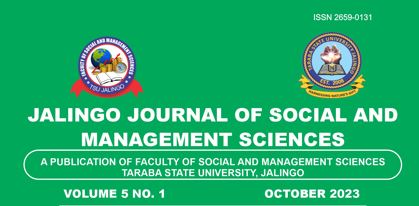ECOWAS Trade Liberalization Scheme and Nigeria’s Economic Development
Keywords:
ECOWAS, Trade Liberalization Scheme, Effect & Economic DevelopmentAbstract
ECOWAS Trade Liberalisation Scheme (ETLS) opens up grounds for the abolition of customs duties levied on imports, exports and on non-tariff barriers to realize a free trade Area within the West African sub-region. It is against this background that this study examines ECOWAS Trade Liberalization Scheme and Nigeria’s economic development. The key objective of the study is to analyse the effect of implementing ECOWAS trade liberalization Scheme on Nigeria economic development. The study was anchored on New Trade Theory. Mixed research design which entails both qualitative and quantitative method were adopted. The findings revealed that ECOWAS trade liberalization scheme has positive impact on Nigeria’s economic development. Also the strategy adopted in achieving ETLS on Nigeria’s economic development has contributed in achieving the set objective. The study recommends that Nigeria government need to pay relative interest in the issue of trade liberalization to stand a chance of benefiting from the potentials of the larger West African market for sales of its finished products as market for the raw materials is already saturated within the ECOWAS sub-region. Exchange rate liberalization is also critical in facilitating trade in any economy; policy makers should ensure that exchange rate is determined by the forces of demand and supply. Nigerian government should include the building of trade-related institutional and technical capacity at national and regional levels and involve the participation of all major stakeholders such as Member States, ECOWAS Commission, Private Sector, and Development Partners. These strategies will refine the ETLS and address the various implementation constraints that limit the impact of the scheme to the Nigerian Economy.

Downloads
Published
Issue
Section
License
Copyright (c) 2023 JALINGO JOURNAL OF SOCIAL AND MANAGEMENT SCIENCES

This work is licensed under a Creative Commons Attribution-NonCommercial 4.0 International License.
